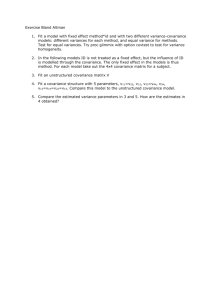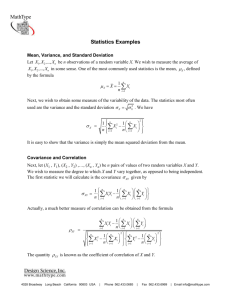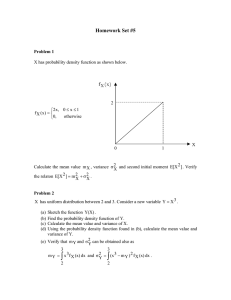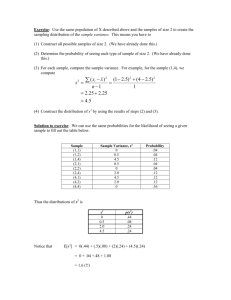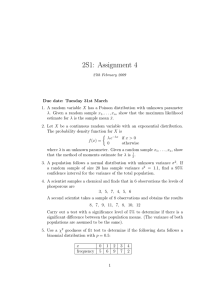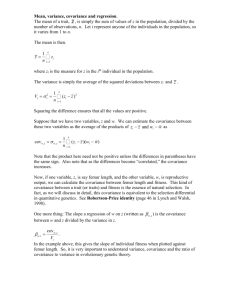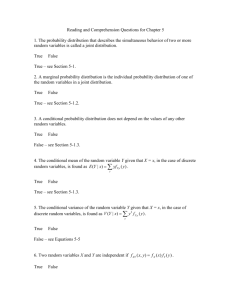MIT Department of Brain and Cognitive Sciences Instructor: Professor Sebastian Seung
advertisement
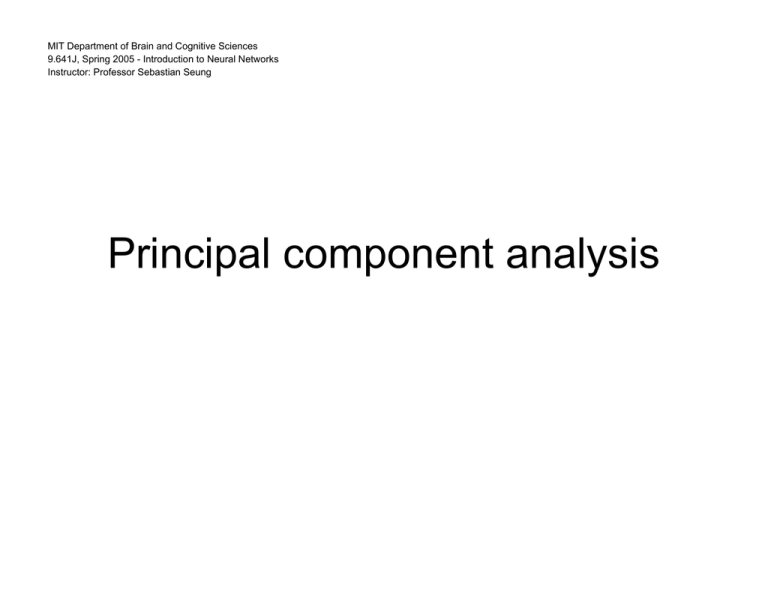
MIT Department of Brain and Cognitive Sciences 9.641J, Spring 2005 - Introduction to Neural Networks Instructor: Professor Sebastian Seung Principal component analysis Hypothesis: Hebbian synaptic plasticity enables perceptrons to perform principal component analysis Outline • • • • • Variance and covariance Principal components Maximizing parallel variance Minimizing perpendicular variance Neural implementation – covariance rule Principal component • direction of maximum variance in the input space • principal eigenvector of the covariance matrix • goal: relate these two definitions Variance • A random variable fluctuating about its mean value. δx = x − x (δx ) = x − x 2 2 2 • Average of the square of the fluctuations. Covariance • Pair of random variables, each fluctuating about its mean value. δx1 = x1 − x1 δx2 = x2 − x2 δx1δx2 = x1 x2 − x1 x2 • Average of product of fluctuations. Covariance examples Covariance matrix • N random variables • NxN symmetric matrix Cij = x i x j − x i x j • Diagonal elements are variances Principal components • eigenvectors with k largest eigenvalues • Now you can calculate them, but what do they mean? Handwritten digits Principal component in 2d One-dimensional projection Covariance to variance • From the covariance, the variance of any projection can be calculated. • Let w be a unit vector (w x) T 2 2 − w x = w Cw T T = ∑ wi Cij w j ij Maximizing parallel variance • Principal eigenvector of C – the one with the largest eigenvalue. w = arg max w Cw * T w : w =1 λmax (C) = max w Cw T w: w =1 = w Cw *T * Orthogonal decomposition Total variance is conserved • Maximizing parallel variance = Minimizing perpendicular variance Rubber band computer Correlation/covariance rule • presynaptic activity x • postsynaptic activity y • Hebbian ∆w = ηyx ∆w = η(y − y )(x − x ) Stochastic gradient ascent • Assume data has zero mean • Linear perceptron y=w x ∆w = ηxx w ∂E ∆w = η ∂w 1 T E = w Cw 2 T C = xx T T Preventing divergence • Bound constraints Oja’s rule • Converges to principal component • Normalized to unit vector ∆w = η(yx − y w) 2 Multiple principal components • Project out principal component • Find principal component of remaining variance clustering vs. PCA • Hebb: output x input • binary output – first-order statistics • linear output – second-order statistics Data vectors • xa means ath data vector – ath column of the matrix X. • Xia means matrix element Xia – ith component of xa • x is a generic data vector • xi means ith component of x Correlation matrix • Generalization of second moment m 1 = ∑ X ia X ja m a=1 xi x j xx T 1 T = XX m
